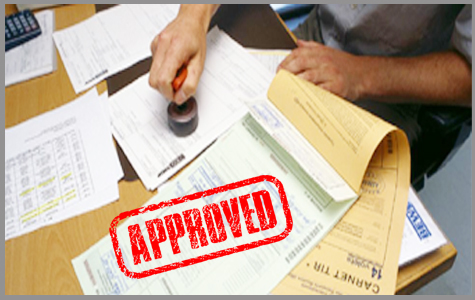Import Dangerous Goods to the UK
Importing dangerous goods is a complex process that demands strict adherence to regulations and procedures to safeguard individuals, the environment, and property. The United Kingdom (UK) recognizes the significance of ensuring the safe importation of such goods and has implemented comprehensive guidelines and frameworks to govern this practice. In this article, we will explore in detail the regulations and procedures involved in importing dangerous goods to the UK. We will highlight key considerations for importers, discuss relevant laws and agencies, outline the documentation requirements, and emphasize the safety measures that must be followed throughout the importation process. One of the primary reasons for imposing stringent regulations on the importation of dangerous goods is to mitigate potential risks. The UK has enacted the Carriage of Dangerous Goods and Use of Transportable Pressure Equipment Regulations (CDG Regulations), which serve as the primary legislation governing the importation of hazardous substances.
Regulations and Considerations
mporting dangerous goods to the UK necessitates compliance with various regulations to mitigate potential risks. The primary legislation governing this process is the Carriage of Dangerous Goods and Use of Transportable Pressure Equipment Regulations (CDG Regulations). These regulations implement the European Agreement concerning the International Carriage of Dangerous Goods by Road (ADR) and the International Maritime Dangerous Goods Code (IMDG Code).
Importers must classify dangerous goods according to their hazard class and packaging group, as outlined in these international codes. The classification determines the appropriate packaging, labeling, and documentation required for safe transportation and handling. Importers must also consider the requirements for dangerous goods transportation by air, land, or sea, depending on the chosen mode of transport.
Moreover, importers should be aware of specific restrictions or prohibitions on certain dangerous goods, such as explosives, radioactive materials, and biological substances. Compliance with restrictions ensures adherence to international safety standards and local regulations, safeguarding public health and the environment.
Relevant Laws and Agencies
The UK has established several laws and agencies to oversee the importation of dangerous goods. The Health and Safety Executive (HSE) plays a pivotal role in enforcing safety measures and regulations related to dangerous goods. It provides guidance on safe handling and storage practices and offers licenses and approvals for specific activities involving hazardous substances.
Another key agency is the Office for Product Safety and Standards (OPSS), responsible for ensuring that imported products, including dangerous goods, comply with relevant safety regulations. OPSS performs market surveillance, carries out risk assessments, and enforces product safety legislation to protect consumers and businesses.
Additionally, the Department for Transport (DfT) oversees the transport of dangerous goods in the UK. It works in conjunction with international bodies to implement safety standards, monitor compliance, and enforce penalties for non-compliance. The DfT provides guidelines, resources, and training to facilitate the safe importation and transportation of dangerous goods.
Documentation Requirements
To import dangerous goods into the UK, certain documentation is essential to ensure compliance and facilitate smooth customs clearance. The primary document required is the Dangerous Goods Declaration, which contains vital information about the goods being imported. It includes the goods' classification, packaging, quantities, and handling instructions.
Importers must also provide a Safety Data Sheet (SDS) for each dangerous substance or mixture imported. An SDS provides comprehensive information on the hazards, safe handling, storage requirements, and emergency response procedures for the goods.
Furthermore, importers need to obtain the necessary permits, licenses, or certificates for specific categories of dangerous goods. For example, the importation of firearms or explosives would require permits issued by the Home Office. Radioactive materials necessitate licenses from the Environment Agency or the Scottish Environment Protection Agency.
In addition to these documents, importers must ensure compliance with customs requirements, such as the completion of customs declarations and the payment of applicable duties and taxes. Non-compliance with customs regulations can lead to delays in clearance or even the seizure of goods.
Safety Measures during Importation
The safe importation of dangerous goods involves various measures to minimize risks and prevent accidents. Importers must ensure appropriate packaging and labeling, following international standards and regulations. Adequate packaging provides containment and prevents leakage, while clear labeling informs handlers of the potential hazards and precautions.
Training and awareness programs for employees involved in the handling and transportation of dangerous goods are vital. Such programs help in understanding the risks, proper handling techniques, and emergency response procedures. Regular training ensures that employees remain up to date with safety practices and regulations.
The implementation of secure storage facilities is essential to prevent unauthorized access and minimize the risk of theft or misuse. Proper storage practices, including the separation of incompatible substances, adequate ventilation, and the use of fire-resistant materials, are crucial for maintaining a safe environment.
It is imperative to have comprehensive emergency response plans in place. These plans should outline procedures to follow in the event of a spill, leak, or other emergencies. Regular drills and exercises help employees become familiar with these procedures, ensuring a swift and effective response when required.
Importing dangerous goods to the UK entails adherence to stringent regulations, thorough documentation, and strict safety measures. The UK government has established robust frameworks and agencies to ensure the safe importation and transportation of hazardous substances. By complying with these regulations, importers contribute to protecting public safety, the environment, and property.
DOCUMENT REQUIREMENTS
- Certificate of Origin
- Bill of Lading
- Packing List
- Commercial Invoice
- Customs Clearance

